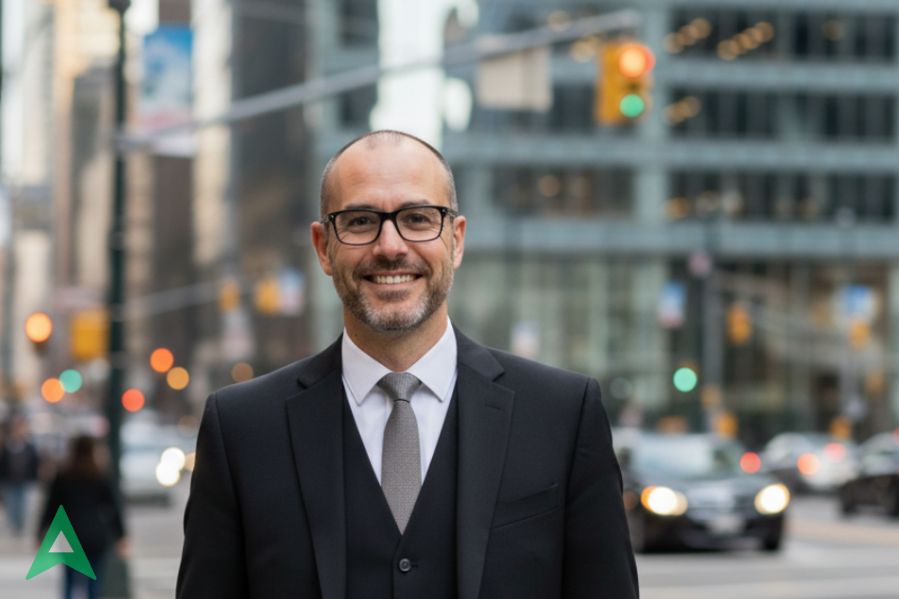Kennedy Funding Ripoff Report: What Borrowers Need to Know Before Committing

The Kennedy Funding Ripoff Report is a group of consumer complaints that have been published online, primarily on websites such as Ripoff Report, aimed at the lending activities of Kennedy Funding. Borrowers from all over the country have made complaints, complaining of concealed fees, poor communication, and non-refundable fees for loans that never worked out. These complaints tend to depict a scene of discontent and distrust between borrowers and this New Jersey-based private lender. But it’s important to realize that Ripoff Report permits anyone to make complaints without making efforts to prove the accusations or requesting supporting documentation. Therefore, it is a complainants’ forum rather than a reliable indicator of fraud or illegality. Some borrowers claim they were deceived since they paid fees in anticipation of loan approval and then were rejected. Others think that the firm’s advertising suggested loan assurances that were not contractually backed. The Kennedy Funding Scam Report, then, is not one document—it’s a collection of borrower anger, some based on legitimate complaints and some possibly on miscommunication or incompatible expectations.
Who Is Kennedy Funding and What Do They Provide?
Kennedy Funding is a private commercial lender that issues bridge loans and asset-based real estate loans, frequently for unusual or high-risk ventures. It was established in the 1980s, and they affirm to have funded over $3 billion in loans to borrowers in the U.S. and abroad. Kennedy Funding is different from the conventional banks that focus on income verification, credit ratings, and traditional underwriting. They are more accommodating in their approach. Their loans are usually collateral value-driven, including land, development projects, or distressed real estate. This is attractive to developers and investors who require quick capital or those who may not be eligible for traditional financing. Kennedy Funding’s speed and agility can be a lifeline when time-is-of-the-essence opportunities present themselves. But there is a different set of risks that go along with that speed—risks that borrowers need to be well aware of before signing on any dotted lines or paying any fees.
Knowing the Nature of Complaints
The Kennedy Funding Ripoff Report shows some dominant themes in borrower complaints. The first is non-refundable upfront costs. Most borrowers report they were charged thousands of dollars for due diligence, appraisals, title searches, or legal reviews before a loan was issued. In others, they were refused funding upon paying those fees and, when asking for a refund, were told the money was non-refundable. The second general complaint is that of communication. Some borrowers indicate that after they made these fees, communication from Kennedy Funding slowed down considerably or came to a complete halt. They felt that they were in limbo and didn’t know the status of the loan and could not receive updates in a timely manner. The third issue is a perceived bait-and-switch. Certain applicants report being originally told that their project would be eligible, then rejected later on grounds that they feel should have been disclosed initially. The last issue pertains to the fine print. Opponents claim that the company evades in vague language and extensive legal documents the real cost or nature of the loan.
Is These Complaints Proof of Fraud?
Even though there is anger and disappointment expressed in the Kennedy Funding Ripoff Report, no public evidence exists to show that Kennedy Funding has ever been convicted of fraud or charged with crime for its business activities. Regulators have not issued cease-and-desist orders or substantial legal action against them. This implies that although the practices of the company could be annoying or ill-explained at times, they would most likely be within the realm of legality. The grievances can then be a reflection of an inherent disparity between borrower expectations and private lending norms. In private loans, particularly high-risk or asset-based transactions, upfront charges are not uncommon. The lenders commit capital to due diligence and anticipate that borrowers will reimburse them for such expenses, whether the loan is completed or not. This is usually the source of misunderstanding. Most often, the borrowers receive an LOI (Letter of Intent) or a term sheet and assume that it is a commitment for a guaranteed loan. They go forward acting as though funding is committed, without realizing afterward that approval ultimately depends on further underwriting and scrutiny. The frustration generated by this results in accusations of having been “ripped off,” even when the process adhered to the terms of the agreement.
Kennedy Funding’s Version
Kennedy Funding has addressed some complaints in public statements, indicating that fees are spelled out in loan documents and that work done in due diligence is not refundable since it represents actual costs involved, such as legal, appraisal, and administrative services. The firm also asserts that borrowers are forewarned that loan approvals cannot be assured. They’ve also acted in recent years to make terms more understandable, improve transparency of documentation, and speed up response times. These changes reflect some degree of acknowledgment that their process might have been confusing or frustrating, even if not with fraudulent purposes. They point out that numerous loans have been successfully financed and clients often come back for repeat projects. Nevertheless, they admit that not all applicants make it in the end and not all transactions close.
What Borrowers Need to Be Aware Of
Any borrower thinking of using a private lender such as Kennedy Funding needs to do their research and come with eyes wide open. Firstly, ask and read through all paperwork prior to signing or remitting money. Don’t trust only verbal guarantees or advertising pamphlets. Learn the design of bridge loans: short-term, high-interest loans, usually employed to acquire time or reset an asset. Fees are common—and sometimes hefty. If a lender requests fees before they’ll approve the loan, get in writing what they cover and if they’re refundable. Second, check if the lender is licensed or registered in your state. While Kennedy Funding does business nationally and internationally, there are states that demand special licensing. Third, get a real estate attorney to review before proceeding. Legal scrutiny can help you avoid ambiguous language or predatory conditions buried in legalese. Fourth, look for third-party reports or Better Business Bureau records. Remember that while Ripoff Report lacks any verification system, repetitive patterns of similar complaints should not be ignored. Use them as red flags and points of discussion with the lender prior to doing business.
Should You Trust Kennedy Funding?
Whether or not to do business with Kennedy Funding is a function of your risk tolerance, need for speed, and experience level in using private financing. They are not a traditional lender. Their flexibility and speed are useful to some, but their fee model and communication style have been roundly criticized. Low-risk, well-documented borrowers may do better with traditional credit sources. However, if your project is high-risk, non-repetitive, or time-sensitive, and you can stomach pay-to-play due diligence, then Kennedy Funding could be a possibility—if approached delicately. Ask pointed questions. Demand transparent answers. Engage a lawyer. And don’t invest money unless you know what you’re getting. Remember that private lending is not consumer-friendly by nature. It’s designed for savvy borrowers with urgent needs and real assets. Proceed like a professional, and you’ll limit your risk of becoming part of the Kennedy Funding Ripoff Report.
(FAQs)
1. Is Kennedy Funding a legitimate company?
Yes. Kennedy Funding has been in business for decades and has funded billions in loans. However, its practices—especially regarding upfront fees—have drawn criticism from some borrowers.
2. Why do people complain about Kennedy Funding?
Common complaints include non-refundable fees, poor communication, and loan rejections after fee payments. Some borrowers feel misled about their chances of approval.
3. Can I get a refund if my loan is denied?
Generally, no. Kennedy Funding makes it clear that due diligence fees are non-refundable, as they cover actual services like appraisals and legal reviews.
4. What kind of loans does Kennedy Funding offer?
They offer bridge loans secured by real estate assets, including raw land, commercial developments, and international projects.
5. How can I protect myself when borrowing from a private lender?
Do your research. Read contracts carefully. Get a legal review. Ask about every fee. Don’t proceed unless everything is clear and documented.
For More Visit CelebToday



